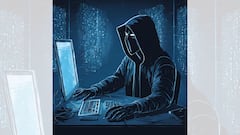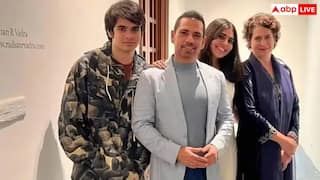OpenAI Responds To ANI Copyright Infringement Lawsuit, Says It Builds AI Models Using 'Publicly Available Data'
OpenAI stated, "We are actively engaged in constructive partnerships and conversations with many news organisations to explore opportunities, listen to feedback, and work collaboratively."

OpenAI has released an official statement following a copyright infringement lawsuit filed by news agency ANI in the Delhi High Court. ANI has accused OpenAI of using its content without authorisation to train and operate ChatGPT, alleging a breach of copyright laws. The agency is seeking damages of Rs 2 crore and a permanent injunction to prevent further use of its material.
What Did OpenAI Say?
In its statement, OpenAI emphasised its efforts to support the media industry and its reliance on widely accepted legal principles to develop AI systems. “We take great care in our products and design process to support news organisations. We are actively engaged in constructive partnerships and conversations with many news organisations around the world, including India, to explore opportunities, listen to feedback, and work collaboratively. Along with our news partners, we see immense potential for AI tools like ChatGPT, including through search, to deepen publishers’ relationships with readers and enhance the news experience,” an OpenAI spokesperson said.
The company highlighted its ongoing collaborations with media outlets worldwide, including in India, to explore opportunities for mutual growth. It underscored the potential of AI tools like ChatGPT to strengthen publishers’ connections with readers and improve the overall news experience. "More broadly, we build our AI models using publicly available data, in a manner protected by fair use and related principles, and supported by long-standing and widely accepted legal precedents," the company added.
ALSO READ: OpenAI CEO Sam Altman Says Artificial Superintelligence Is 'Thousands Of Days Away'
The legal dispute, however, raises significant questions about the evolving relationship between artificial intelligence (AI) and copyright law. Justice Amit Bansal, who is presiding over the case, declined to grant immediate relief, noting the complexity of the issues at hand.
The court hinted at appointing an amicus curiae to offer expert guidance on the interplay between AI technology and intellectual property rights.
What Did OpenAI Inform The Court?
During the hearing, OpenAI’s legal team informed the court that it had removed links to ANI’s content, including access to the agency’s official website.
ANI’s representation argued that OpenAI’s alleged violations extended beyond copyright infringement. The agency cited instances where ChatGPT reportedly generated false attributions to ANI, potentially spreading misinformation.
OpenAI has denied any wrongdoing, asserting that its systems are designed to address inaccuracies when identified. The next hearing in this pivotal case is scheduled for January 2024.






































